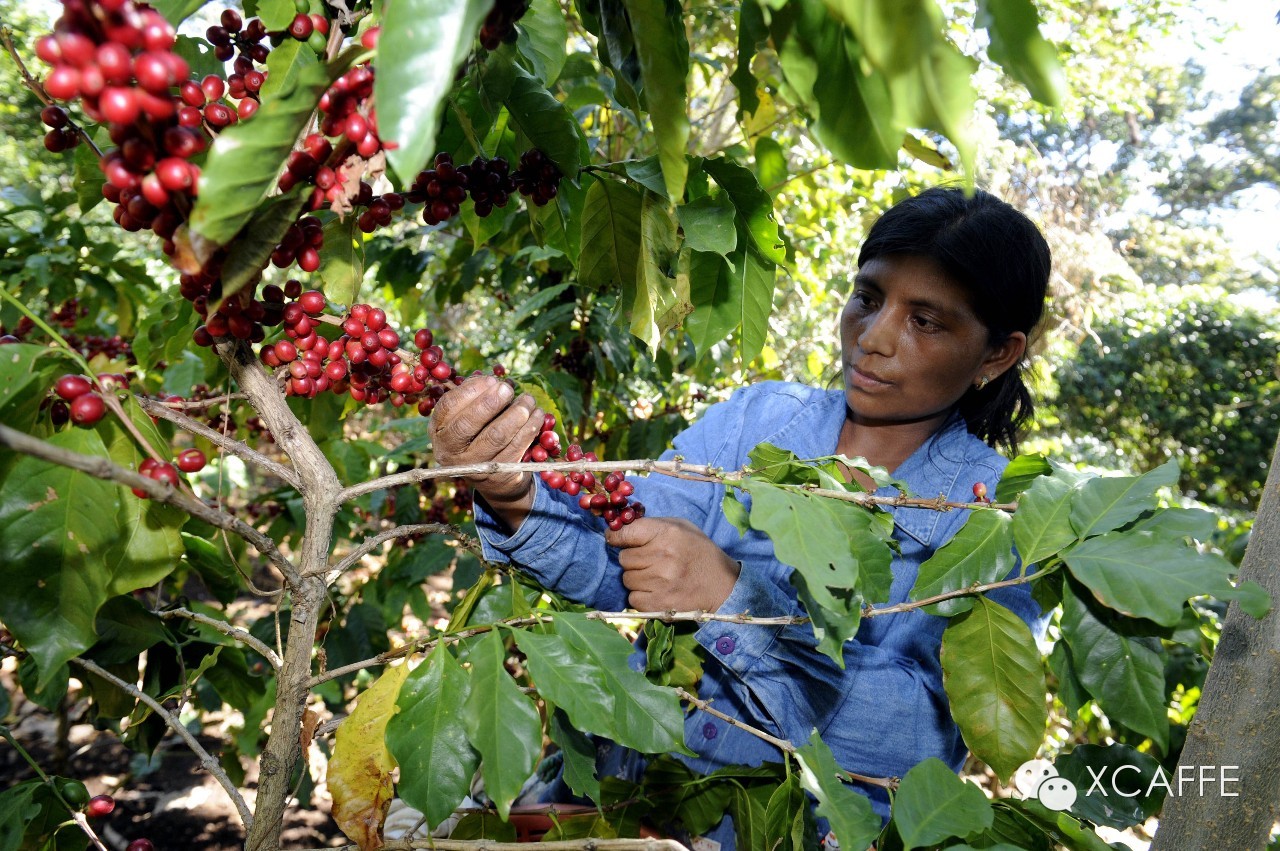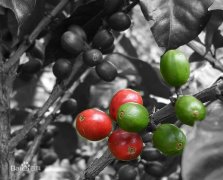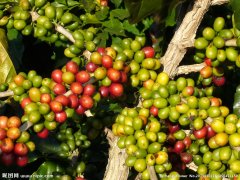The Chateau Lajas in the central valley of Costa Rica ferments a thick, thick texture.
Specialty coffee is also known as specialty coffee or specialty coffee. It refers to coffee made from green beans with excellent taste characteristics grown in a few extremely ideal geographical environments. Depending on the particular soil and climatic conditions in which they are grown, they have outstanding flavors. This type of coffee is then strictly selected and graded, and its texture is hard, rich in taste, and excellent in flavor. It is a selected coffee bean.
Costa Rica Central Valley Lajas Estate "Black Honey"

Costa Rica Finca las lajas
Flavor: Sweet, syrupy, fruity aromas, cherry, strawberry
Features: Heavy fermentation, thick texture, with fermented grapes and a hint of strawberry and chocolate when lightly baked, more berry fruit aroma when deeply baked
Origin: Costa Rica
Altitude: 1300-1500 m
Bean seed: Kadura Kaduai
Treatment: honey treatment
Lajas (Las Lajas) Small coffee processing plant with more than 80 years of coffee growing and processing history, in the last century 95, because of Lajas (Las Lajas) The second generation of small coffee processing plant operators died of cancer, leaving the third generation Francesca to succeed. Francisca and Oscar Chacon Suspecting that chemical fertilizers and pesticides used on the farm were the culprits, the couple switched to natural, homemade compost, using eco-friendly natural farming methods to treat coffee crops. After five years of unremitting efforts, the soil, branches and fruits of the farm were qualified. In 2000, La Jas became the first farm in Costa Rica to receive organic certification.
Lajas was also one of the first estates in Central America to begin honey and sun treatments. Solarization is a very traditional practice that uses minimal resources, but it is difficult to do well because of the many factors beyond your control. Francesca added many innovations, such as measuring the sugar content of the fruit with a Brix meter, which is often equipped in the wine industry, and determining the best time and treatment for harvesting according to Brix sugar content. The Brix value of ordinary fruits is 14 for apples, 12 for lemons and 18 for passion fruits, but Lajas coffee cherries can reach 21-22%.
Francesca's natural processing process is laborious. The hand-picked high-sugar coffee fruit is placed in the sun for about 10 days in an African elevated shed, then placed in a plastic sheet covered greenhouse to create more direct heat and continue drying until the moisture content reaches 11.5%. The slow drying process allows the beans to develop more natural sweetness from the inside, but it also requires more care and constant stirring. At the end, the red cherries turn black and emit aromas of fruit cake, brown sugar and even sherry. This is Perla Negra!
Costa Rica has a total of eight producing areas, of which it is recognized as the three best producing areas, Tarazhu, Central Valley, Western Valley, Las Lajas is located in Sabanilla de Alajuela in the Central Valley producing area, and the foothills of Poas Volcano. "Lajas" is technically the name of the Chacon family processing plant. The name of the estate is Finca La Mirella, but bean bakers around the world are used to calling it Finca las lajas.
Important Notice :
前街咖啡 FrontStreet Coffee has moved to new addredd:
FrontStreet Coffee Address: 315,Donghua East Road,GuangZhou
Tel:020 38364473
- Prev

Malawi Coffee New World Agaro rose summer and high quality katim excellent flavor
Specialty coffee is also known as specialty coffee. It refers to coffee made from green beans with excellent taste characteristics grown in a few extremely ideal geographical environments. Depending on the particular soil and climatic conditions in which they are grown, they have outstanding flavors. This type of coffee is carefully selected and graded for its hard texture, rich taste and wind.
- Next

Indonesia Mantenin boutique coffee Sumatra pine caramel herbal flavor black coffee
Boutique coffee (specialty coffee) is also called specialty coffee selection coffee. It refers to coffee made from a small number of raw beans with excellent taste grown in an ideal geographical environment. Depending on the special soil and climatic conditions in which they grow, they have outstanding flavor. After strict selection and classification, this kind of coffee is hard in texture, rich in taste and stylish.
Related
- Beginners will see the "Coffee pull flower" guide!
- What is the difference between ice blog purified milk and ordinary milk coffee?
- Why is the Philippines the largest producer of crops in Liberia?
- For coffee extraction, should the fine powder be retained?
- How does extracted espresso fill pressed powder? How much strength does it take to press the powder?
- How to make jasmine cold extract coffee? Is the jasmine + latte good?
- Will this little toy really make the coffee taste better? How does Lily Drip affect coffee extraction?
- Will the action of slapping the filter cup also affect coffee extraction?
- What's the difference between powder-to-water ratio and powder-to-liquid ratio?
- What is the Ethiopian local species? What does it have to do with Heirloom native species?

